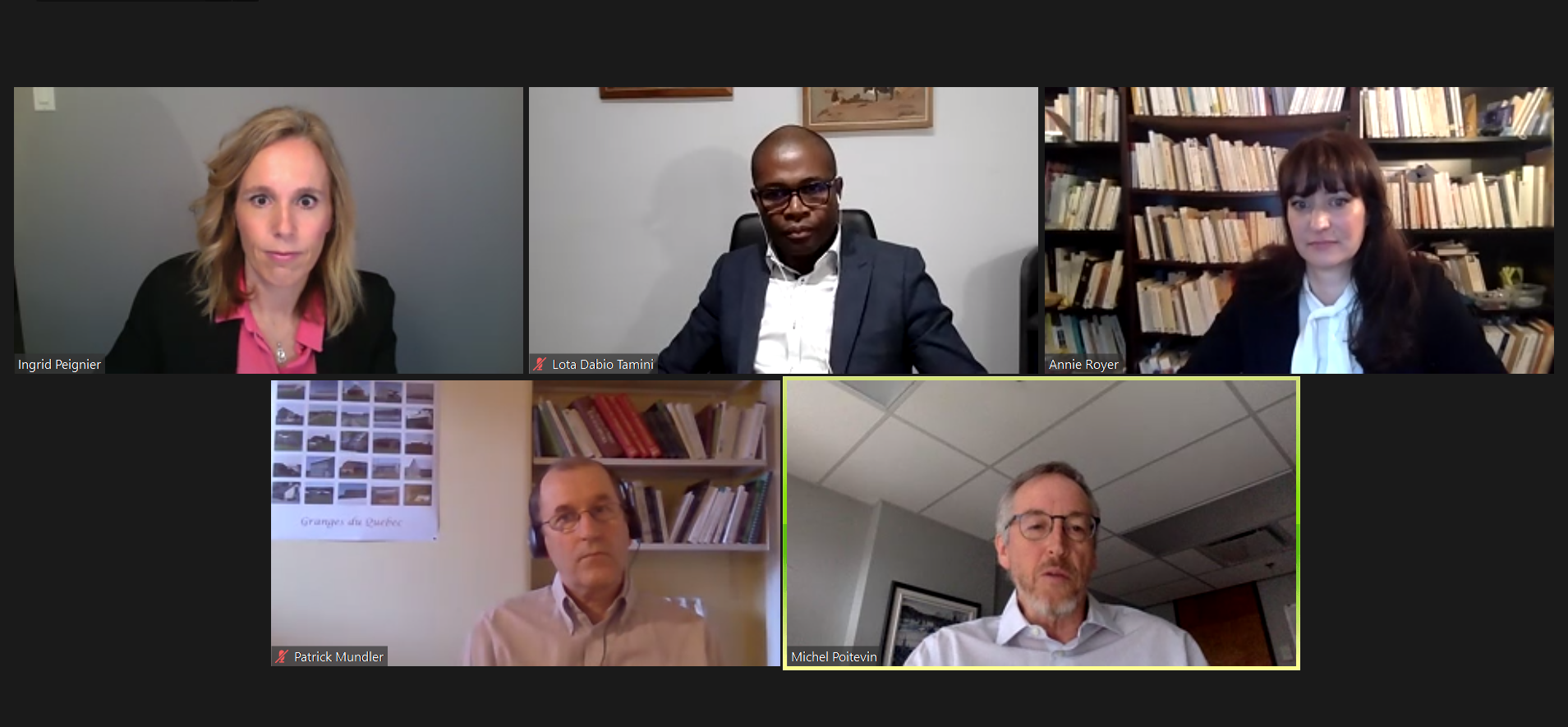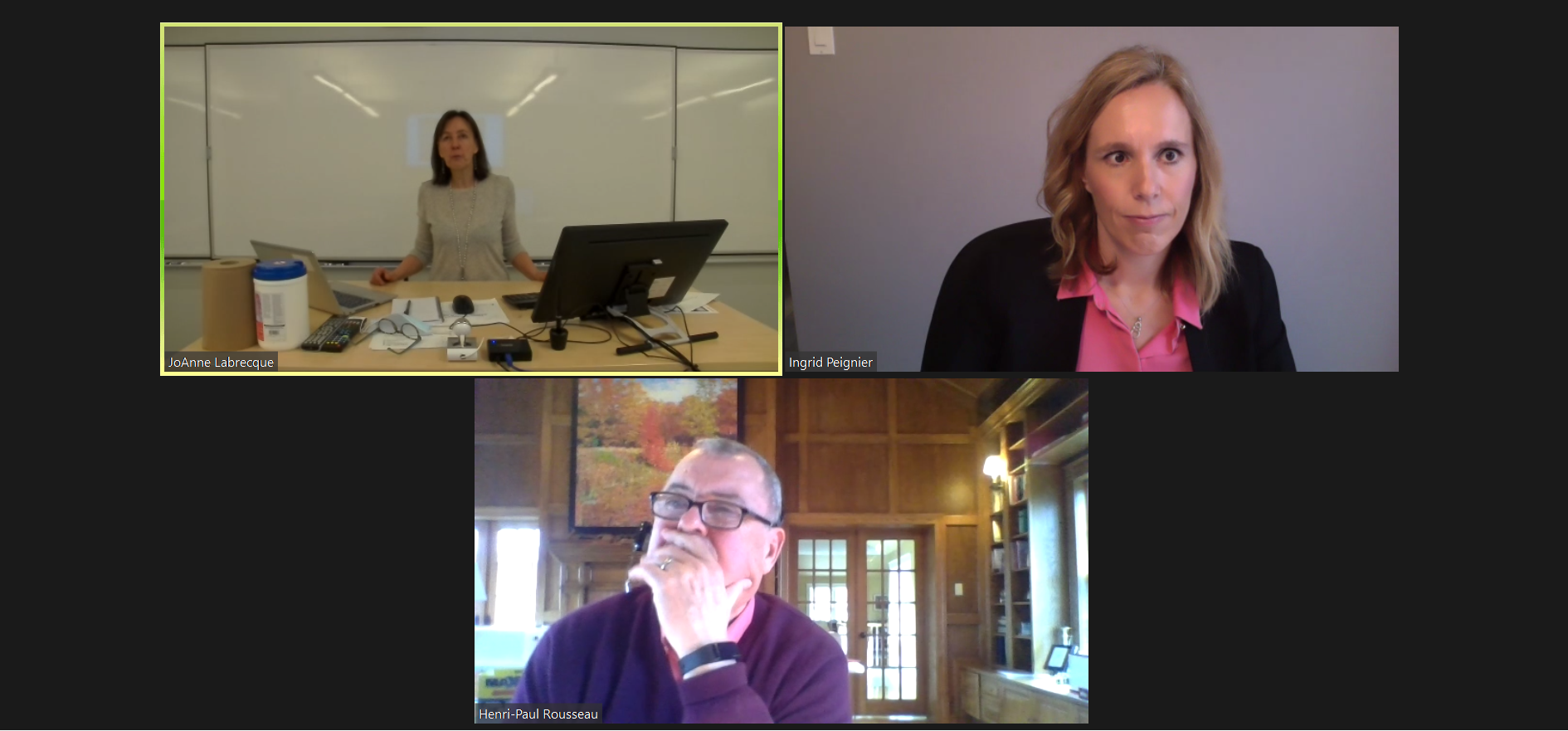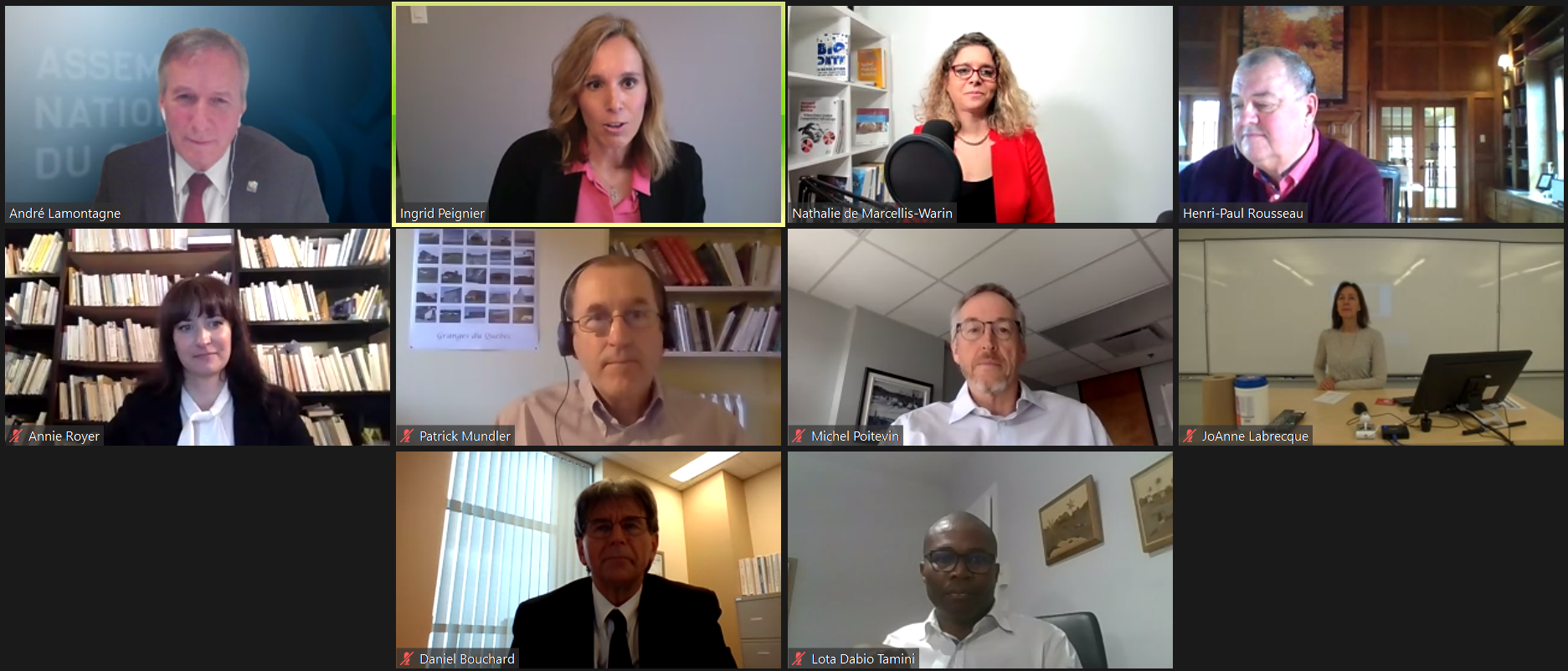A CIRANO Invited Fellow from 2018 to 2024, Henri-Paul Rousseau is an Associate Professor at HEC Montréal and a Senior Fellow of the C.D. Howe Institute. Since July 2024, he has been Québec's Delegate General in Paris.
Henri-Paul Rousseau holds a Bachelor of Arts and a Bachelor of Economics from the Université de Sherbrooke. He continued his studies at the University of Western Ontario, where he received a Ph.D. and the T.M. Brown Award for the best thesis in economics.
When he returned to Quebec, he began an academic career in 1973 at the Université du Québec à Montréal, and then, in 1975, at Université Laval, where he became Chair of the Department of Economics in 1984. He also acted as an advisor to the Canadian and Québec governments. More specifically, he was Director of Research and co-author of the Report on Savings in Québec released in 1980. As an expert advisor to the House of Commons Standing Committee on Finance, Trade and Economic Affairs, he also co-authored an economic impact analysis released in 1985 as part of the White Paper on Personal Taxation.
In 1986, Henri-Paul Rousseau joined the National Bank, where he held several strategic positions, including Senior Vice-President, Treasury and Financial Markets. From September 1990 to April 1991, he served as Secretary of the Bélanger-Campeau Commission on the Political and Constitutional Future of Québec. He was head of Boréal Assurances from 1992 to 1994 and then became President and Chief Executive Officer of Laurentian Bank of Canada before being appointed President and Chief Executive Officer of the Caisse de dépôt et placement du Québec, a position he held from September 2002 to May 2008.
From January 2009 to the end of December 2017, he served as Vice-Chairman of the Board of Directors of Power Corporation of Canada and Power Financial Corporation. He is also a Director of several companies, including Great-West Lifeco and IGM Financial and their subsidiaries, as well as Putnam Investments in the United States. He was a Director of the Global Financial Markets Association from October 2010 to July 2014.
Henri-Paul Rousseau has served on the boards of Santander Bank since 2015, Santander Holdings USA since 2017 and Banco Santander International since 2020; he has been Chairman of Noovelia since 2018.
In 2004, Concordia University awarded him an honorary doctorate and he was elected to the Academy of Great Montrealers in the Economic Sector in 2006. That same year, on the fringe of the Entretiens Jacques Cartier - a forum for exchanges on major societal issues - the Lumière University Lyon 2 awarded him an honorary doctorate. In 2007, the Université de Sherbrooke and Université Laval awarded him the same distinction. He received the medal of Commander of the Order of Montreal in 2016 and was named a member of the Order of Canada in 2018.
Henri-Paul Rousseau has been personally involved with several social and cultural institutions and in the education and health sectors by leading several fundraising campaigns. In addition, he has been a volunteer with the Montreal Heart Institute Foundation for more than 20 years, including nine years as Chairman of the Board of Directors, a position he held until July 2018. He was a member of the selection committee for the Apogee Canada 2015 and 2016 Research Excellence Fund.
Since 2012, Henri-Paul Rousseau has chaired the Tremplin Santé Foundation, which he created to encourage healthy lifestyle habits with young people in Quebec and Canada. Since 2010, he has been founding co-chair, with businessman Charles Sirois, of Réseau QG100, a private non-profit organization whose goal is to contribute to the growth of winning companies in Quebec by accelerating their growth worldwide.





























